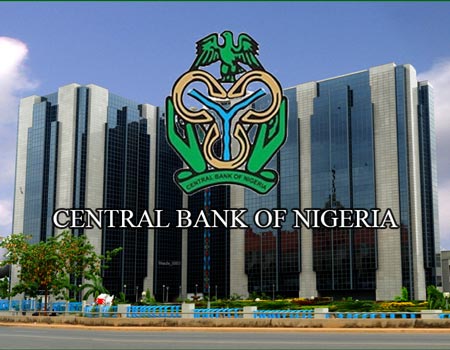Analysts attribute expansion of business activity to CBN’s interventions to critical sectors
[ad_1]
The extension of the Central Bank of Nigeria’s (CBN’s) interventions to critical sectors (such as agriculture and manufacturing) aided the expansion of business activity as well as net acquisition of inventories in the second quarter (Q2) of 2022, analysts have observed.
They further said that this dynamic also supported modest re-pricing of wage, given that employee compensation rose by 14.0 per cent year-on-year ( y/y) to N12.9 trillion in Q2:2022, though this may not impact positively on the average well-being given the sharper increase (17.6 per cent) recorded in households expenditure.
Going forward, analysts from Afrinvest Research said they expect a further improvement in household spending and business investment to drive improved GDP performance in H2:2022, while weaker net exports and government spending continue to drag performance.
The growth in household spending, imports, and business investment over the reviewed period is attributable to the elevated price level in the domestic and external markets.
“We link the sustained fall in government spending to the lack of fiscal capacity to support growth, while the decline in exports could be attributed to Nigeria’s dwindling oil production levels (largest share of exports) and the negative impact of legacy drawbacks on non-oil export potentials,” the analysts said.
According to data released by the National Bureau of Statistics (NBS) earlier in the year, the NBS, using the output approach, reported that Nigeria’s GDP grew 3.1 per cent and 3.5 per cent y/y in Q1 and Q2:2022, respectively.
This performance was aided by the non-oil sector (up 6.1 per cent and 4.8 per cent y/y in Q1 and Q2:2022, respectively) despite the 26.0 per cent and 11.8 per cent y/y contraction in the oil sector over the same period.
ALSO READ FROM NIGERIAN TRIBUNE
By analysing the expenditure and income GDP numbers, “we can provide further insights into the drivers of Nigeria’s economic performance in both periods.
“For context, the expenditure approach tracks the final spending of economic agents (households, government, and firms) as well as the external sector (exports and imports) while the income approach measures income generated by economic agents through value creation,” the experts stated in a note to clients.
A breakdown of the numbers shows that in Q2:2022, household consumption, government spending, investment, exports, and imports accounted for 65.9 per cent (up 425bps from Q1), 4.5 per cent (up 19bps from Q1), 32.4 per cent (down 565bps from Q1), 17.1 per cent (up 106bps from Q1), and 16.5 per cent (up four bps from Q1) share of the total GDP, respectively.
Also, household consumption, investment, and imports grew in real terms by 17.6 per cent (to N14.0 trillion), 4.5 per cent (to N2.5 trillion), and 56.9 per cent (to N2.0 trillion) y/y, respectively in Q2:2022 relative to the growth of 6.9 per cent, 6.2 per cent, and 40.3 per cent in Q1:2022.
Conversely, the export value fell by 30.5 per cent y/y relative to a 10.1 per cent y/y expansion in Q1:2022, while government spending declined further by 13.0 per cent y/y, as against the 9.9 per cent y/y contraction reported in Q1:2022.
[ad_2]















Post Comment